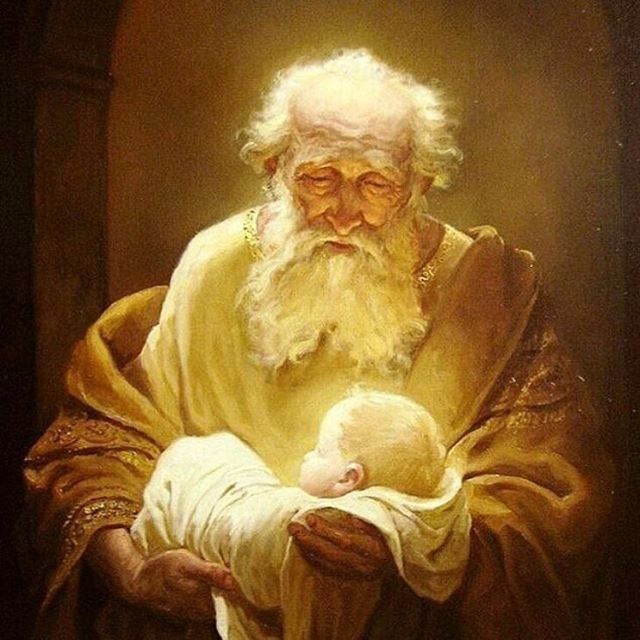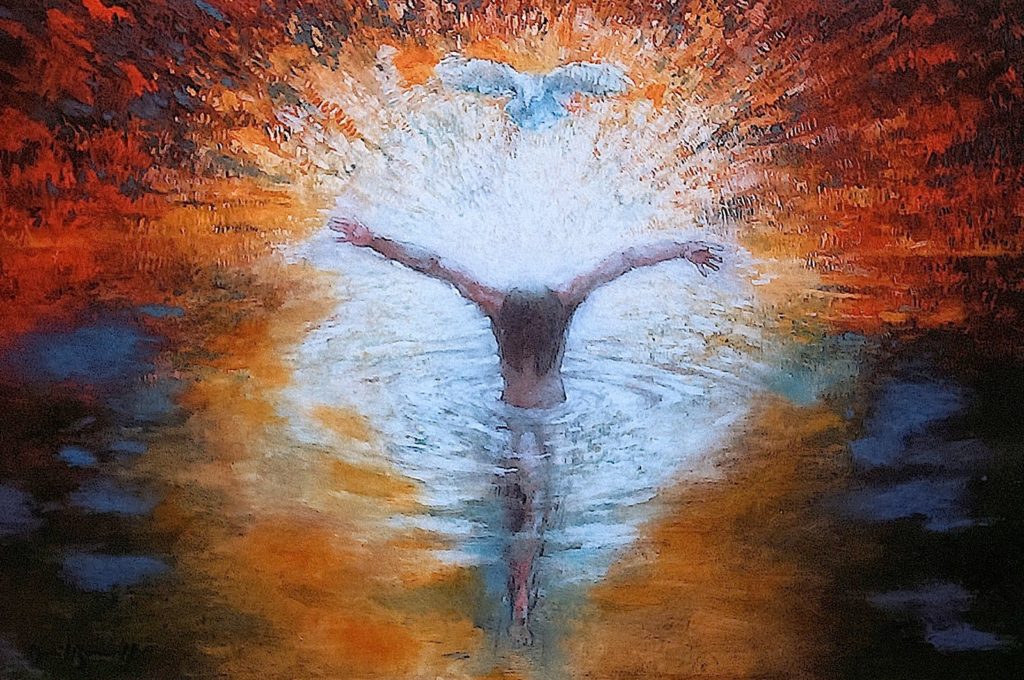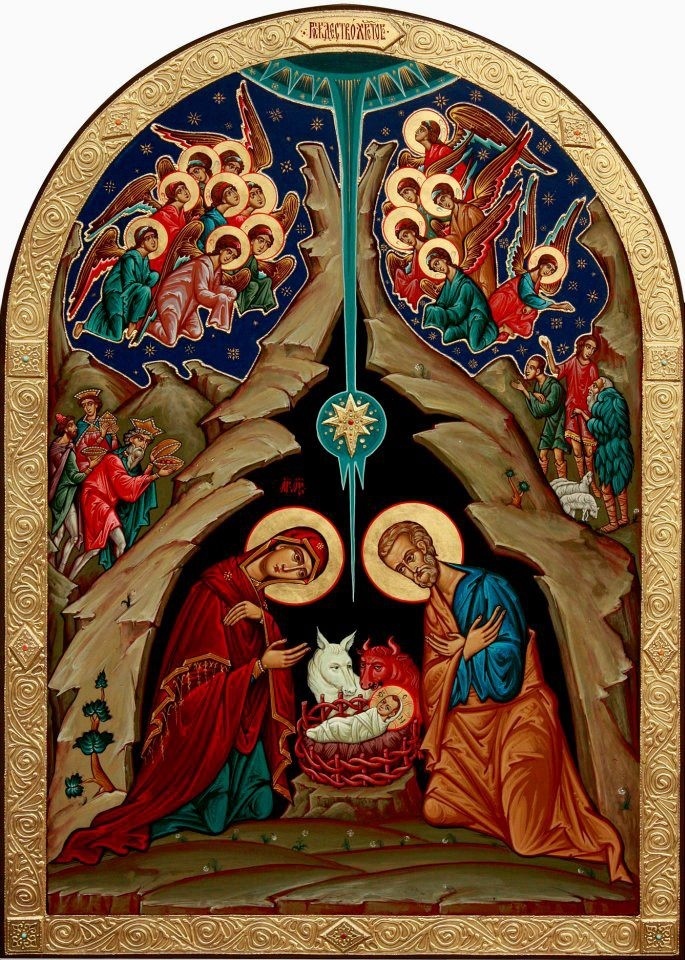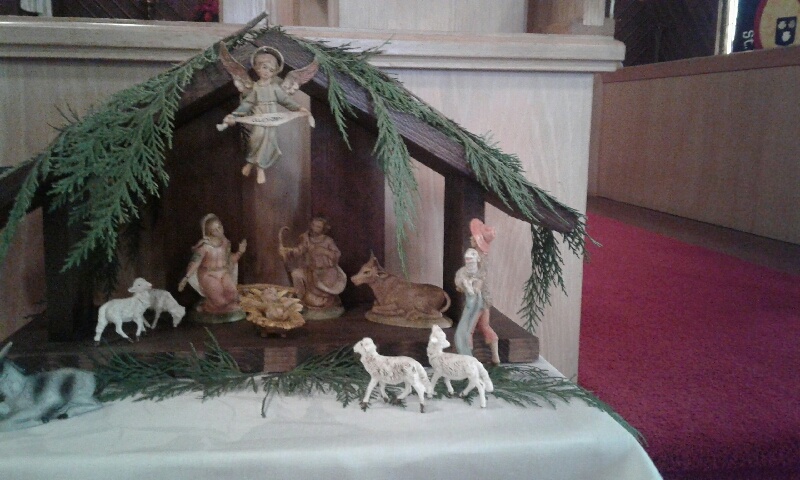
Presentation of Jesus at the Temple
2 February 2019
Today’s readings are:
Malachi 3:1-4
Psalm 84
Hebrews 2:14-18
Luke 2:22-40
Click here to access these readings.
An author friend of mine used to say, “The best part of the story is the one that isn’t told. That’s the part that’s full of possibilities.” And what part of the story of Simeon, whose story we hear just a sliver of this morning – what part of his story do we not hear about?
The years – the years of waiting. There is a weight to this story that is so very beautiful. Simeon probably waited a very long time for the coming of the Messiah, and he was probably very old. He may have, like Anna, whose story we also hear this morning, he may have come each and every day to the Temple to wait and to see. The Holy Spirit had promised him that he would not see death before the coming of the Messiah. And when he sees Jesus, when he finally sees what he’s been waiting for so long, Luke tells us that he wraps the young boy in his arms and speaks an echo of Jesus’ words on the cross: “It is finished. Now at last may I go into peace.”
There is a quiet, gentle relief in Simeon’s words that, at least to me, say quite a bit about how he waited. The years were probably long. They may not have been as gentle and as gracious as those moments when all the waiting ended. Luke tells us that Simeon was a righteous and devout man, but we know from the saints (especially saints like Mother Theresa) and our own lives, that even the most devout of us face real darkness.
And even if Simeon was devout all the way through, even if he waited with patience and with fortitude, even still the years wear down on a person’s heart. The Holy Spirit rested upon him, and he was told that he would not see death until he had seen the Messiah. And maybe he was excited by this, moved with a fire and a joy that he had never before known. But the years wear things down. They’re like wind and rain and the great storms of the sea that turn even stones smooth. Simeon wouldn’t need doubt to wear zeal down; life does that already.
What sort of life, what kind of waiting, would have led Simeon to be type of person who, when all that waiting, all those long years, were finally over, not to rush up to Jesus and pick him up, toss him in the air, and parade him around the Temple with shouts of joy and happiness beyond anything imaginable? There’s a great short-story by Ray Bradbury where astronauts come to a planet where Christ and come as well and just ascended, and these Earthlings, who are so jaded and tired, look on as these aliens rush around, shouting in exaltation, trying to tell them of the utter joy they have come to know in Christ but can’t. They grab the astronauts and babble, then rush away laughing. Why doesn’t Simeon act like that? Why does he simple kneel down, wrap Jesus in his arms, and say, “Now you have set me free?”
Back in college, I studied abroad in Japan. I had been learning Japanese since high school, and I had taken every language class the college offered. I had watched movies and listened to Japanese music and had prepared and prepared and prepared. And yet, when I finally got there, to this land that I had studied and loved and dreamed about for years, the first thing I did was simply look. I walked around neighborhoods, just looking, just drinking it all in, all the things that I had seen on a flat screen or the page of a book; and not the famous temples of Kyoto or the artwork or the geisha or the samurai; but the normal, everyday streets, the wooden houses with tiled rooves, the people going about their business. I just watched, and looked, and wandered, and loved.
Or, almost five years ago now, Helene and I went to the hospital for Gwendolyn to be born. Now, Helene and I had dated for ten years, and we had been married for around five. We had thought about having kids, considered, discerned, and wondered. Then, we had waited nine months of mounting anticipation. We bought clothes and toys and blankets. We had a baby shower and got things we didn’t even know existed. Then we bought a crib, and put it together, and set it in our room, a bed for someone who was not even born yet. And each day our joy and anticipation rose, until one day, the evening of May 13th, we rushed to the hospital. Then it was more waiting, until on the following day, at something like 11:27 in the morning, our first daughter was born.
And those first few moments were exciting, and we’ve got a picture of me holding Gwen, all wrapped up in blankets, with joy (and a bit of exhaustion) on my face. But then that night, that first night of her life, I couldn’t sleep. I just wanted to look at her. I wanted to hold her, actually, but I was too scared that I’d break her she was so delicate. And so I just watched her sleep. She’d catch her breath suddenly, and so would I. She’d wiggle a little, make those tiny little baby noises, and I just watched.
What will it be like when we meet Jesus? After all the hard, long years, after all the grief and sorrow, after all the joy and excitement, after all the darkness and the doubt, what will it be like for Jesus to be, finally, standing right in front of us. What will it do to us? What will it do to all that grief and sorrow, that joy and excitement, all that darkness and doubt? What will it do to our wayward life and our tired soul to stand before Jesus Christ and see, finally, God face to face?




